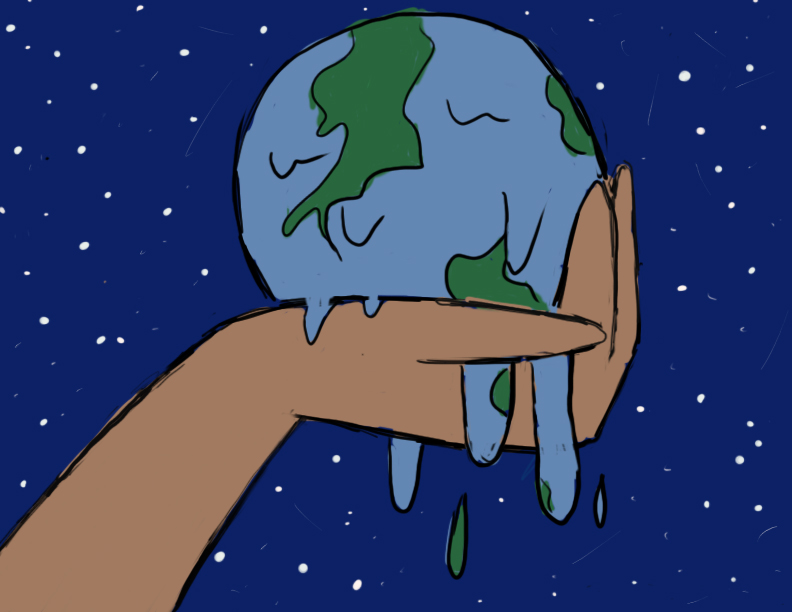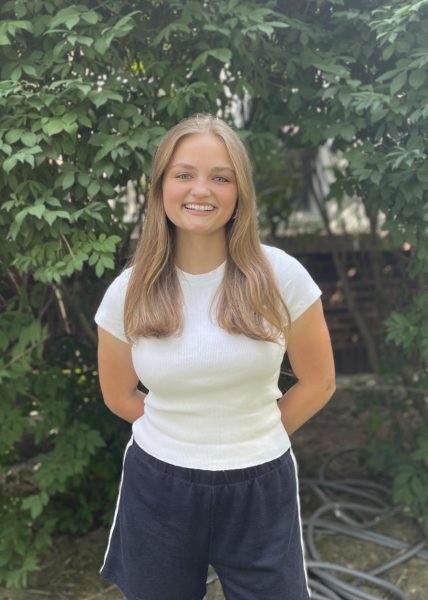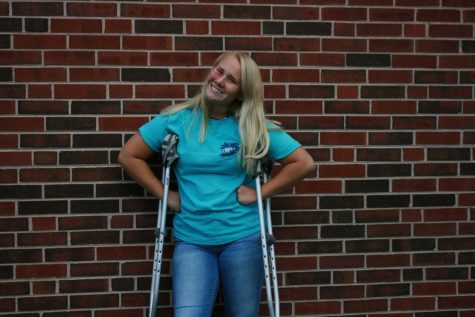Climate change from an RB students perspective
November 10, 2020
Members of the Riverside Brookfield High School community, along with the entire planet, have witnessed the impacts of climate change. Climate change is the warming of our planet which leads to change in global or regional weather patterns.
Well, what causes climate change in the first place? Human activity is likely to blame. We burn fossil fuels like oil and coal everyday in order to power our homes, cars, factories, and airplanes.
We also consume a large amount of animals, which produce another gas, known as methane. When these gasses are released up into the atmosphere, and sunlight shines into the earth’s atmosphere, some heat gets trapped, in turn, making the planet warmer. This is called the “greenhouse effect.” As the years go by and temperatures continue to climb, this will undoubtedly create disastrous consequences for our planet’s health. And it’s already beginning to happen.
Evidence of substantial climate change is being presented to us everyday throughout the globe. The warming oceans, shrinking ice sheets and glaciers in the Arctic and Greenland, the ever rising sea levels, and extreme weather and temperatures.
Mr.Shermack, a science teacher at RB, voices his concern on the loss of biodiversity.
“According to the research, scientists believe that on average four species should go extinct every four years. That’s about one every year. Right now, we are seeing that at a much, much, higher rate. We are seeing about 30,000 species go extinct every year,” Shermack said. “There are other things that are contributing to the loss of biodiversity, but climate change is one of them.”
The loss of animal species is prominent on every continent, including the United States. Some of the other big effects taking place in America are the raging wildfires in the west, the hurricanes in the south east, and the unpredictable precipitation patterns across the country.
Here in Illinois and in the Midwest, climate change is taking its effects as well. Already warm temperatures are likely to continue to rise. Droughts and heavy downpours which lead to flooding are likely to occur more in the future. These will cause damage to our agriculture, forestry, air quality, health, and much more.
“If you look at Illinois, where we live, and you look at the last 100 years, according to the Department of Natural Resources, the precipitation across the state has decreased,” Shermack said.
But more specifically within the Cook County and Chicago area, temperatures will get warmer, and air quality will get worse. Water, food, and vector-borne illnesses will become more common, and allergens will intensify.
Freshman Rachel Watson, shares her unease for our posterity.
“That makes me feel kind of worried for future generations just because it will make the world a harder place to live,” Watson said. “It’s a kind of problem that you don’t want for your kids.”
The Cook County Board and the Forest Preserves of Cook County are making efforts to reduce the effects of climate change. In January of 2019, they planned on making all Cook County buildings and operations carbon neutral by the year 2050. If executed correctly, this could lower greenhouse gas emissions drastically. Therefore, creating cooler temperatures, and better air quality. More recently, in July of 2020, they released the county’s Clean Energy Plan. This plan is set to reduce carbon emissions at Cook County buildings, maintain that reduction, and “Renew the County’s electricity supply through on-site solar energy generation, procurement of renewable energy and energy storage.”
There are simple things everyday people can do in order to help reduce the effects of climate change.
“We tend to walk or bike around a lot more than driving because that’s one way to prevent climate change from spreading more quickly,” Watson explained. “Simple things like that can help out a lot.”
People can also do things such as using reusable water bottles, carpooling with a friend or family member when you must drive, and cutting down on your meat intake.
“If we look at livestock, and the amount of CO2 that they produce, it’s more than any other sector,” Shermack said. “Over half of the greenhouse gasses that are released into the atmosphere across the world, come from livestock.”
Spreading awareness to your friends and family, and working together in your community to promote eco. friendly habits can make a big difference.
Student Anabella Ventura-Mckinney calls for better cooperation when it comes to dealing with climate change.
“I think we need to work on working together better, because a lot of people are working against each other,” Mckinney said.
In order to get people involved and invested in making our Earth healthier, we must learn the facts and consequences from the start. It is essential that we learn skills and ideas that help us navigate through the rest of our lives, and climate change is likely to be one of the biggest problems presented to our generation.
“I think alot of our previous generations were unaware, we just didn’t know,” Shermack said. “But I think now more than ever the science is clear.”
Although climate change is intimidating, and it may seem easier to ignore it, it is only going to get worse. Climate change won’t wait for us to be ready.
“If we don’t have a generation who cares…then nothing is going to change…I think we need a generation like that, and I think we have one. I think they are more aware, and more educated, and they are very passionate about making a difference, and making the world a better place.” Shermack said.



